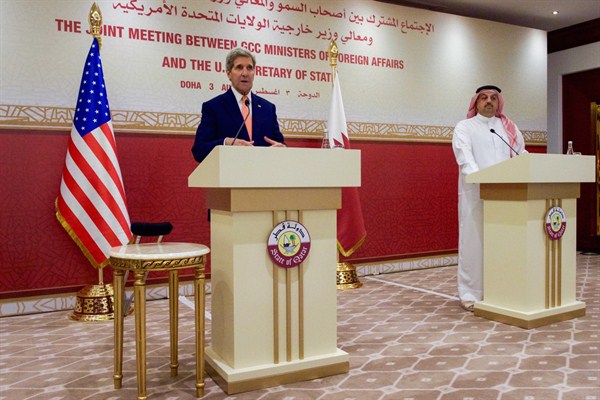Editor’s note: This will be Richard Weitz’s final “Global Insights” column at World Politics Review. We’d like to take this opportunity to express our deep gratitude for all the support he has shown for WPR since its inception, and we look forward to working with him regularly in the future.
One of the main goals of U.S. Secretary of State John Kerry’s latest Middle East trip is to reassure U.S. partners there that the recent Iran nuclear deal will not jeopardize their security. The Obama administration is using several instruments to achieve this goal, including helping the Persian Gulf states enhance their collective defenses against Iran’s powerful missile force.
Although past efforts toward this end have yielded minimal progress, several recent developments could increase the prospects of ballistic missile defense (BMD) cooperation among the member states of the Gulf Cooperation Council (GCC), which comprises Saudi Arabia, the United Arab Emirates, Qatar, Bahrain, Kuwait and Oman. However, many old barriers to GCC-wide BMD cooperation persist, while some new ones have arisen.

